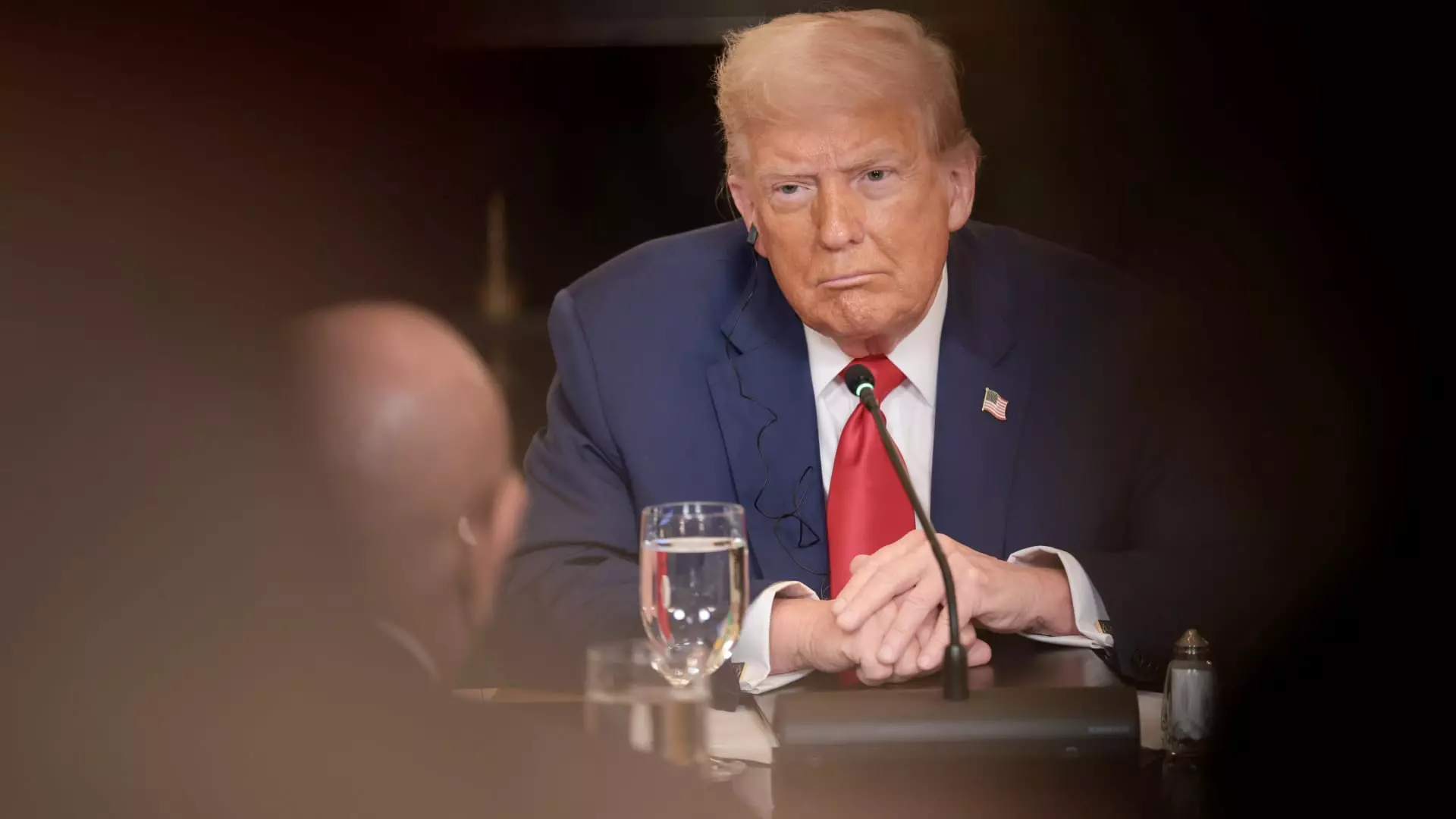In a scrappy tug-of-war between accountability and secrecy, the recent push by President Donald Trump to unseal Jeffrey Epstein’s grand jury transcripts has ignited a fierce debate about government transparency, justice, and political manipulation. While the formal request seems rooted in a desire for truth, it masks underlying political motives that threaten to undermine public trust in our judicial system. In a landscape fraught with misinformation and conspiracy theories, this move could either serve as a pivotal step toward genuine disclosure or devolve into a politicized spectacle designed to serve partisan interests.
What lies beneath the surface of this drama is an urgent question: does transparency serve democracy or do efforts to unseal such documents risk exposing more than what is necessary? The reluctance of federal courts to release Epstein’s sealed testimony underscores the rigidity of legal protocols meant to protect privacy and prevent sensationalism. However, in an era where the public demands accountability, even these protections become battlegrounds for power and influence. The push for releasing Epstein’s transcripts is not purely about justice; it is about control—who gets to see the truth, and who benefits from its concealment.
Political Motives Cloaked in the Pursuit of Justice
President Trump’s involvement in calling for the unsealing of Epstein’s files, especially amid claims of a “scam” perpetuated by Democrats, points to political spectacles that distort the pursuit of an honest investigation. His framing of this issue as part of a partisan “scam” indicates that, for some, the fight over Epstein’s documents is intertwined with broader narratives—ones that seek to discredit opponents rather than uncover facts.
The timing, following reports of a letter bearing Trump’s signature among Epstein’s personal belongings, hints at a calculated desire to garner political capital. Supporting the release of these records might be motivated by genuine concern, but it also risks weaponizing a sensitive case for electoral or ideological gain. The figure of Epstein has become a symbol—either of elite depravity or of a deep-state cover-up—and that duality fuels chaos rather than clarifies where actual accountability lies.
Furthermore, the resistance from Justice Department officials and judges reflects a recognition that unsealing these transcripts would be unprecedented and potentially explosive. It risks exposing uncomfortable truths about powerful individuals and institutions that, for many, remain shielded by legal protections designed for fairness but exploited as shields of secrecy. The battle over these documents reveals much about the fragile balance between justice, political influence, and the public’s right to know.
Conspiracies, Public Distrust, and the Myth of Innocence
The Epstein saga has morphed from a criminal case into a fertile ground for conspiracy theories that threaten to undermine public confidence in the rule of law. Supporters’ demands to release a supposed “client list” or to reveal more about Epstein’s alleged blackmail scheme reflect a deep-rooted suspicion of elites. The narrative that Epstein was the tip of a corruption iceberg—potentially implicating wealthy and influential figures—is both captivating and dangerous.
The official declarations that Epstein acted alone or took his own life have not quelled these suspicions. A significant segment of the population views the narrative skeptically, suspecting a cover-up that protects more powerful figures. This skepticism fuels a perpetual cycle of distrust, which can threaten the stability of democratic institutions. If the truth remains hidden—whether by design or circumstance—it risks fostering a culture where conspiracy theories fill the void, further polarizing an already divided society.
The decision by some officials, including figures within Trump’s orbit and Republican circles, to advocate for more transparency reveals a complex middle ground. They recognize the importance of holding powerful individuals accountable but are also wary of the chaos that could ensue from indiscriminate disclosures. It must be an investigation rooted in integrity, not spectacle.
The Future of Justice in an Era of Political Partisanship
As the debate rages on, it becomes clear that the Epstein case is not merely about one individual or one set of transcripts; it serves as a mirror reflecting broader issues of accountability, transparency, and political manipulation. In a society increasingly divided along partisan lines, the temptation to weaponize legal proceedings for electoral gain is potent and dangerous.
The challenge lies in navigating the tension between the public’s right to transparency and the judiciary’s need to uphold procedural fairness. Political actors on both sides have a responsibility to resist the urge to turn this into a partisan circus, but history suggests that such restraint is often in short supply. The outcome of this clash could determine how future corruption cases are handled—whether as opportunities for real reform or as opportunities for further sedimentation of distrust.
The question remains: will unveiling Epstein’s secrets truly serve justice, or will it deepen the cynicism that erodes the faith in our institutions? The answer hinges on whether transparency is pursued with honesty and integrity or exploited as a tool for political warfare. Regardless of the immediate outcome, this episode underscores the essential need for a balanced approach—one that safeguards the rule of law while holding the powerful accountable without descending into chaos or conspiracy.

Leave a Reply